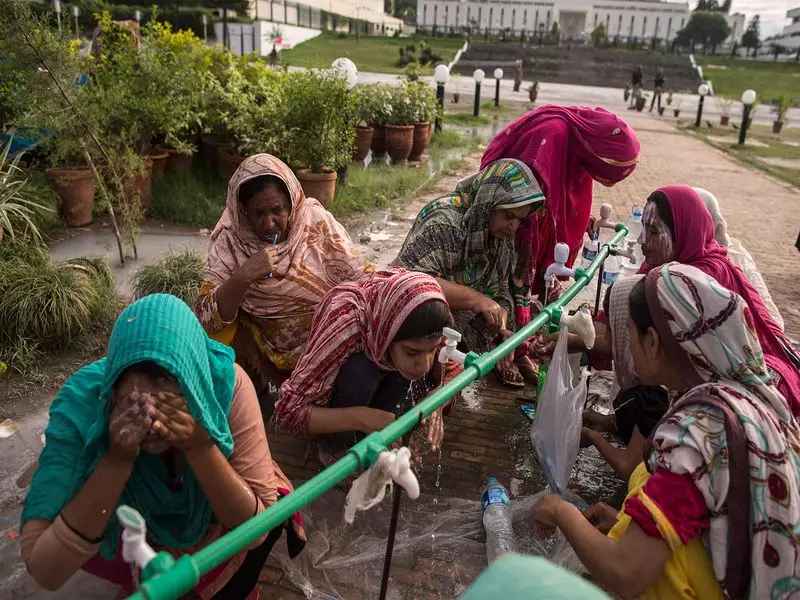
The bustling port city of Karachi, Pakistan's economic hub, is grappling with an unprecedented water crisis that has left millions of residents struggling to access even basic drinking water. The situation has reached critical levels as frequent and prolonged power failures continue to cripple water pumping operations across the metropolis.
Power Outages Paralyze Water Supply Systems
Residents across multiple neighborhoods including North Nazimabad, Gulshan-e-Iqbal, and Federal B Area have reported severe water shortages that have persisted for several days. The core issue stems from frequent power breakdowns that prevent water pumps from operating effectively. Many areas are experiencing water supply disruptions lasting between 12 to 18 hours daily, forcing residents to adopt desperate measures for survival.
Local communities have been particularly hard-hit in the sweltering summer heat, with temperatures soaring and humidity levels making life unbearable without adequate water supply. The problem has been compounded by what residents describe as unannounced and extended load shedding by K-Electric, the city's primary power provider.
Residents Voice Frustration and Desperation
Affected citizens have expressed growing anger and frustration over the deteriorating situation. Many report that water supply remains suspended for the majority of the day, returning only briefly during late night hours when pressure is insufficient to reach upper floors of apartment buildings. This has created a humanitarian crisis where basic hygiene and sanitation are becoming increasingly challenging.
Local residents have highlighted the disproportionate impact on vulnerable populations, including children, elderly citizens, and those with medical conditions. The water scarcity has forced many households to purchase expensive tanker water from private suppliers, placing additional financial strain on families already struggling with inflation and economic challenges.
Official Response and Long-standing Infrastructure Issues
The crisis has exposed the fragile state of Karachi's aging water infrastructure and the urgent need for systemic improvements. While authorities acknowledge the problem, residents complain that temporary solutions have failed to address the root causes of the water distribution network's collapse.
Water experts point to multiple contributing factors beyond power failures, including outdated pipelines, inadequate storage capacity, and population growth that has outpaced infrastructure development. The combination of these elements has created a perfect storm that leaves Karachi particularly vulnerable to disruptions in either power or water systems.
Community leaders are calling for immediate intervention from both water and power authorities to coordinate efforts and establish emergency protocols. They emphasize that without concerted government action, the situation could escalate further, potentially leading to public health emergencies and social unrest in Pakistan's largest city.





